In a toss-up Central Valley district, Republicans and Democrats wage a vicious campaign
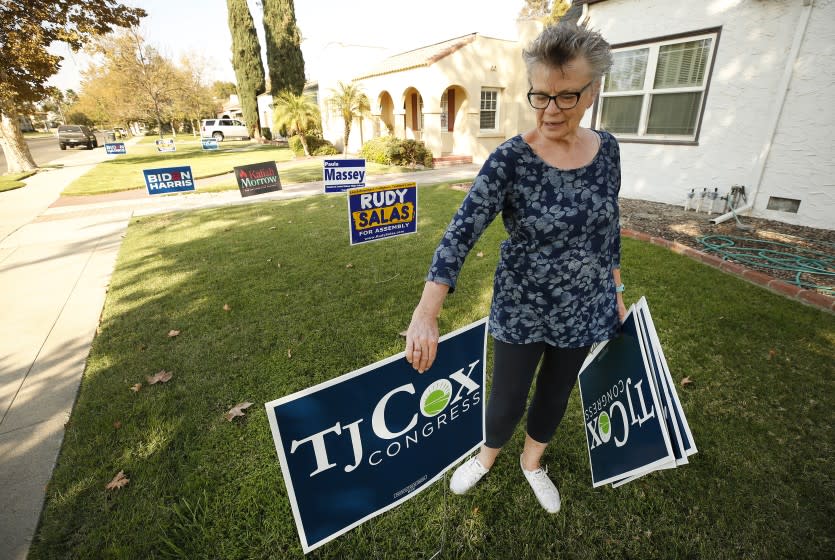
Ominous music plays as a copy machine spits out side-by-side photos of President Trump and former Republican Rep. David Valadao, who is running for the congressional seat he lost two years ago.
In the advertisement from his challenger, Democratic Rep. T.J. Cox, a deep-voiced narrator calls Valadao "a yes-man who voted with Trump 99%" — a barb in a state that is the heart of the liberal resistance.
Ads supporting Valadao, meanwhile, portray Cox as a shady millionaire, flashing images of a yacht and champagne flutes and hammering him for a $145,000 lien for unpaid taxes that the Internal Revenue Service filed against him earlier this year. Cox, one ad claims, is "the single most corrupt member of Congress."
This is the prime-time beat down that runs in endless loops at the home of Janie Isidoro and her family in the Central Valley every time they turn on the TV or radio or venture onto Facebook.
"Sometimes it'll be Valadao, then T.J. Cox, then Valadao," said Isidoro, who runs a Chicano gift shop and bookstore in downtown Hanford. "Me, my husband and the kids literally sit there and are like, 'Whaaaat?!' It's a bloodbath."
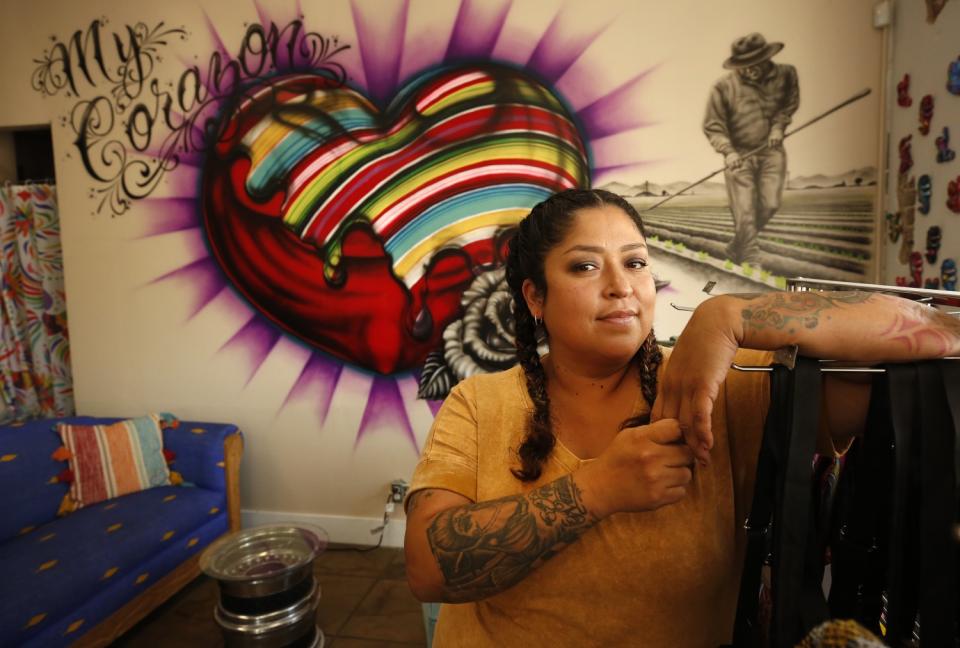
Welcome to the race for the 21st Congressional District — parental discretion advised for political ugliness — a purpling battleground in the heart of California's ruby-red Central Valley.
The congressional seat is one of seven in California that Republicans lost amid a 2018 anti-Trump blue wave that helped Democrats retake the U.S. House of Representatives. The claws have come out in this rural, heavily Latino region that has been tilting to the left after decades of Republican domination.
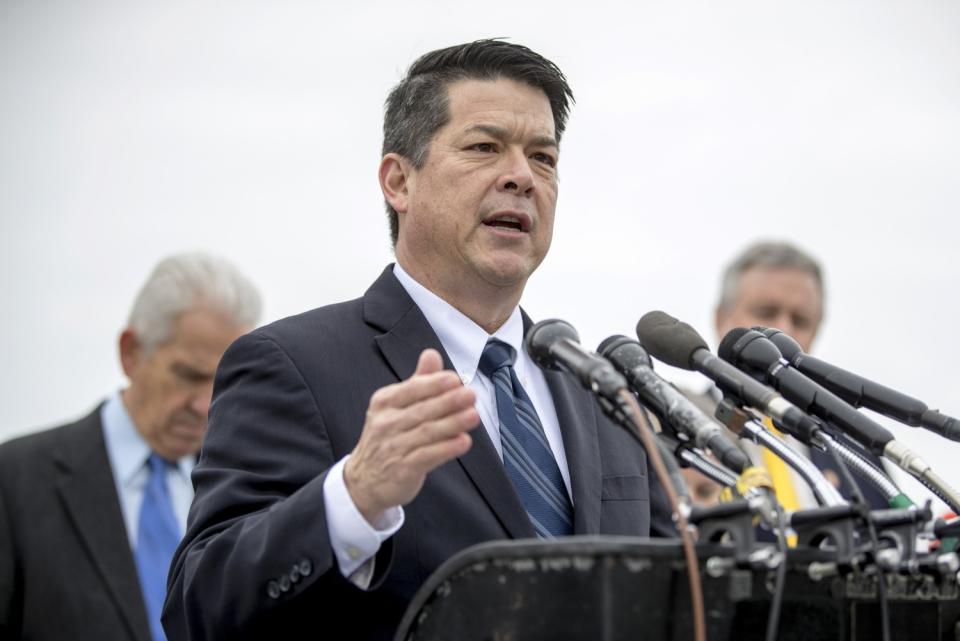
"This race is a really big deal," said Ivy Cargile, an assistant professor of political science at Cal State Bakersfield. "The Republicans want it back. They never thought this district was going to be flippable ... The Central Valley, it's the Bible Belt of California."
The vast district is marked by small towns, dairy farms and vast agricultural fields. Dust is everywhere: It coats vehicles. It is kicked up by the wind into dust devils. It haunts the stories of Dust Bowl refugees who settled here.
It is one of the most Latino congressional districts in the country, with Latinos comprising three-quarters of the population and about 57% of registered voters. "Mixed-status" families, in which some members are citizens and others are not, are common.
Both Cox and Valadao say they support a path to citizenship for young immigrants brought into the country illegally as children, and both are quick to say they are sons of immigrants. Cox's parents hailed from the Philippines and China; Valadao's are from the Azores Islands of Portugal.
In 2018, Cox unseated Valadao, a three-term GOP congressman, by just 862 votes in a surprise victory that sent shock waves through a Republican Party that now holds only seven of the Golden State's 53 House seats.
On election night two years ago, Valadao led by around 4,400 votes, and the Associated Press declared him the winner. But the lead eroded as mail-in and provisional ballots were counted. The AP retracted its call, and Cox claimed victory three weeks after election day. The Cook Political Report, a nonpartisan election handicapper, calls this year's race a toss-up.
But Republicans strongly believe they can win it back. Justin Richards, political director for the National Republican Congressional Committee, said this week that though the group does not reveal its internal polling, there is evidence that Valadao is doing well.
"There's enough data out there to show how strong some of our candidates are doing, whether it's David Valadao in California 21, a district that Hillary Clinton won by 15 points, being up by 10, or [California Congressman] Mike Garcia winning again in a Hillary district," he said.
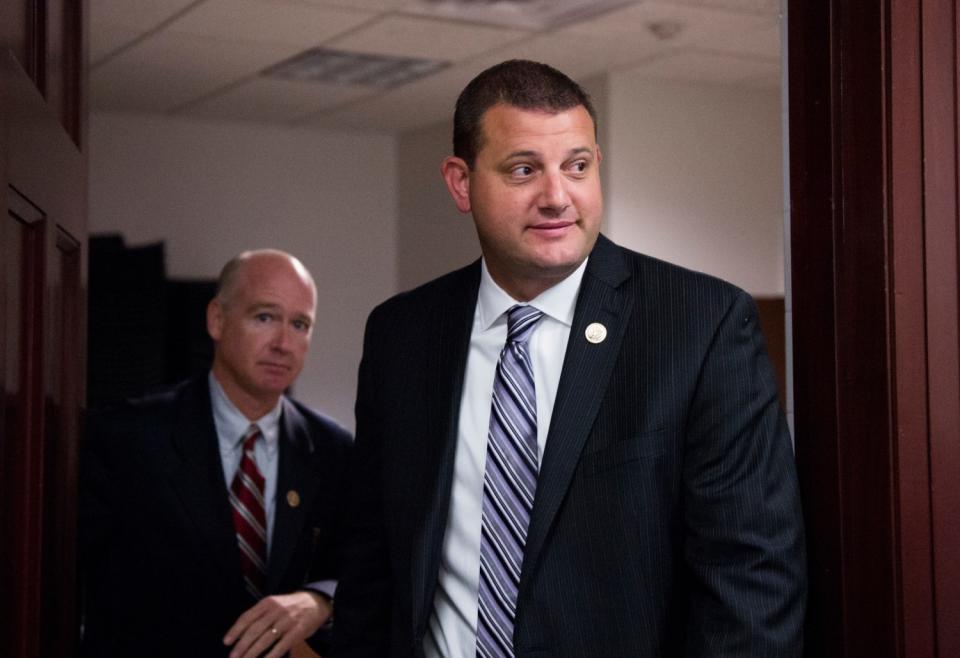
The 21st District — which includes all of Kings County and portions of Fresno, Tulare and Kern counties — is sandwiched between the districts of two high-profile Republicans: House Minority Leader Kevin McCarthy (R-Bakersfield) and Rep. Devin Nunes (R-Tulare), whose giant red-lettered signs plastered all along Interstate 5 and Highway 99 scream: SAY NO TO SOCIALISM.
Representing the space between McCarthy's and Nunes' districts is "a particular form of political and personal indigestion," Cox told The Times.
"My opponent has been Kevin McCarthy's pet project," Cox said. "Kevin McCarthy is going after me on the House floor every time he has an opportunity, and the fact is he is the leader of the Republican Party that lost seven seats ... in his backyard, and he's looking for redemption."
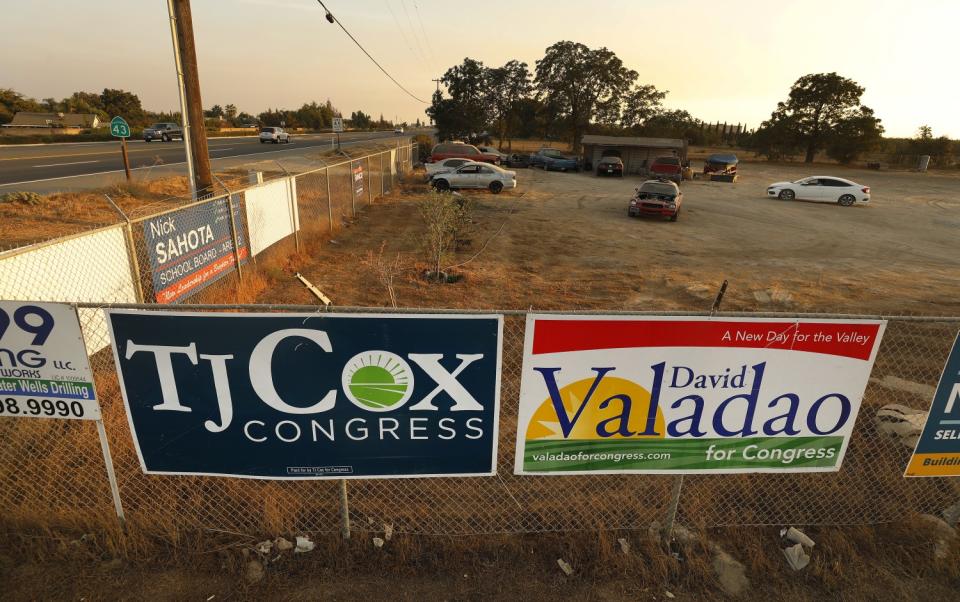
Cox, a 57-year-old engineer who founded two nut-processing companies, said, "the Republican policies — limiting healthcare access and a woman's right to choose, tax cuts for the very wealthy — aren't the things that are paying off for people in the valley."
The 21st District, where Clinton beat Trump by 15%, would seem an apparent stronghold for Democrats. Among registered voters, 44% are Democrats and 27% are Republicans. But Valadao, a 43-year-old Hanford dairy farmer who benefits from local name recognition, easily held the seat after his first race in 2012, until Cox eked out a win.
Democrats here tend to be more conservative than those in the Bay Area and Southern California, said state Assemblyman Vince Fong (R-Bakersfield). Valadao, he said, prevailed by focusing on local issues such as water access in the drought-plagued Central Valley.
"It's a very blue-collar community, very tight-knit. They want problem solvers. When you run for office here, you have to cut through the noise," Fong said.

In an interview, Valadao said he lost in 2018 in part because of so-called "ballot harvesting."
For years, Republicans nationwide have decried laws that allow a third party to collect voters' completed ballots, saying the process is ripe for election fraud. But in recent weeks, the California Republican Party has been sparring with state officials over its use of unofficial, unauthorized containers labeled as ballot drop boxes, which were placed at gun shops, shooting ranges, churches and GOP offices in several counties.
"There's a lot of rhetoric being thrown around, but at the end of the day, everything I've done in my career and campaigning has been focused on myself and my opponent and not allowing outside noise to play a role," Valadao said.
Cox, who voted to impeach Trump, has been eager to tie Valadao to the president.
"You have a president that has absolutely no respect for the Latino community," Cox said. "He insults them at every turn, calls them rapists and murderers. ... The Donald and David show was hurting people of the valley. They stood up and made their voices heard in 2018, and they're going to do it again in 2020."
During a February speech in Bakersfield on water policy, Trump called Valadao an "incredible guy" and said, "We really need him badly in Washington."
But Valadao — who pitches himself as a moderate willing to work with both sides of the aisle — has invoked the name of another president: Barack Obama. In one ad, he claimed he "worked with President Obama to bring more water to the Central Valley" and "stood up to his own party to reform immigration and protect Dreamers."
A spokeswoman for Obama told news organizations that Valadao was "resorting to distortion to falsely suggest President Obama's support" and that Obama had endorsed Cox.
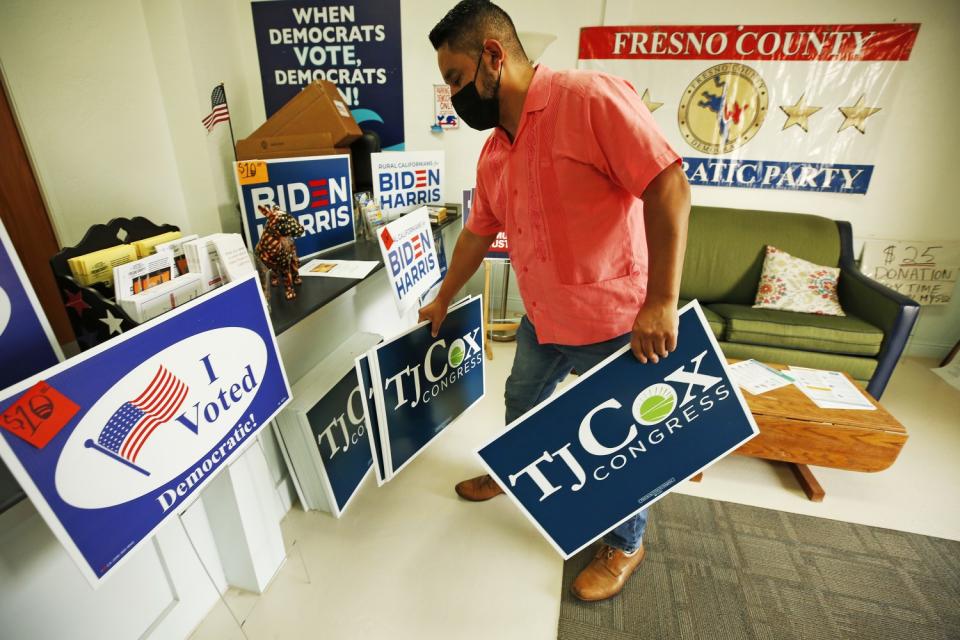
Migrant stories are the soul of this sunbaked district, where, in 1948, a plane chartered by federal immigration officials crashed near Coalinga, killing all 32 people on board — including 28 migrant farmworkers being flown to the Mexican border. The anonymity of the farmworkers, buried without names in a mass grave in Fresno, prompted Woody Guthrie to write a poem that would later be sung by a string of artists including Dolly Parton and Bruce Springsteen: Who are all these friends, all scattered like dry leaves? / The radio says, "They are just deportees."
The district also includes Delano, where Cesar Chavez and Mexican and Filipino grape pickers staged a five-year strike half a century ago for more humane working conditions for field workers.
"This is one of the largest agricultural districts in the country, the biggest producers of fruit and nuts and dairy, the heart of the table grape industry. Perhaps no place in the nation is more important to changing our immigration laws than [this] district," said Marc Grossman, spokesman for the United Farmworkers. "That was before COVID-19, which devastated farmworkers."
The coronavirus has ravaged the Central Valley, spreading rapidly among Latino essential workers in food processing plants and in the fields. But in Kings County, where Trump beat Clinton by 13% in 2016, many don't wear masks, and road signs read: "The only thing worse than COVID-19 would be Biden-20."
At a heifer auction this month at Overland Stock Yard in Hanford, no one in the small, all-male audience covered their faces, and attendees spoke admiringly about people fleeing California for Idaho.
When a Times reporter asked several attendees about the congressional race, one motioned for her to pull her mask down, looked at her press badge, then told her that he did not want to speak to "your kind."
In the Kings County Republican headquarters across town, volunteer Mary Jane Loya, 74, blamed ballot harvesting for Valadao's loss.
“You don’t want to accuse anybody of being dishonest, but it just didn’t seem to add up," she said. "They’re really on top of it this year to make sure these votes get turned in right and by the right people and they're signed correctly and there's not a lot of provisional ballots.”
Loya, who has lived in Hanford since 1967, said she knows Valadao's family, and "he comes from good stock."
In that GOP office, Trump 2020 masks were for sale, but no one covered their face. Meanwhile, the Democratic Party office in Fresno was plastered with signs about social distancing, and masks were ubiquitous among the few people present.
For Democrats, "our ground game has been crippled" by the pandemic, said Cathy Jorgensen, chair of the Democratic Central Committee in Kings County. The party no longer has a physical office in the county after closing its small space in Hanford as a safety precaution, she said.
Volunteers are relying on phone banking, letter writing, social media and text messaging instead of knocking on doors.
Hanford is a tough place to be a Democrat, she said. Years ago, someone flipped over a Democratic table she was running at a farmers market and tore up her informational papers. Someone else sent her a threatening letter.
"I'm not going to be cowed by this, but this is rough," she said. "This has been a pretty dirty campaign, and that makes me sad."
Humberto Gomez Jr., a Central Valley regional director for the state Democratic Party, said Valadao lost a lot of support after voting in 2017 to replace the Affordable Care Act with a Republican-engineered healthcare plan.
After that vote, Gomez said, a taqueria across the street from Valadao's Catholic church put up signs supporting Valadao's challengers, and it "was a huge statement."
Gomez — whose Mexican grandfather was a so-called bracero working the fields as part of a guest worker program during World War II — said that whoever wins the Latino vote will win the race.
But reaching voters amid a pandemic that is disproportionately killing Latinos is a struggle because Democrats are eschewing in-person campaigning, he said.
“People are working out in the fields; they're not going to be picking up the cellphones or talking, so, generally, you have to work a ground game here," Gomez said. "This is old-school grass roots. You don't win this district with mailers, with advertisements. You win this district by knocking on doors."
Times staff writer Sarah D. Wire contributed to this report.
This story originally appeared in Los Angeles Times.

